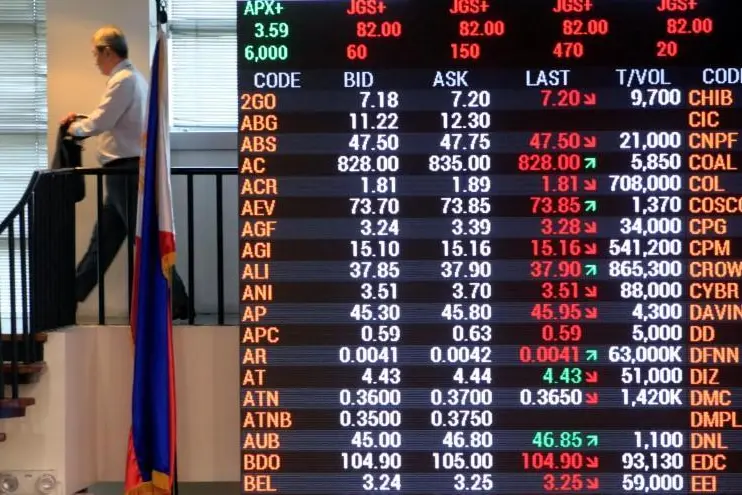PHOTO
European stocks rose on Wednesday, boosted by company earnings, while U.S. futures dipped and the dollar climbed as investors assessed signals on the path for Federal Reserve interest rates.
The yen fell even with the threat of currency intervention from Japanese authorities to support it. Oil prices traded near two-month lows.
Europe's continent-wide Stoxx 600 index rose 0.26% on Wednesday, supported by upbeat earnings reports, after rising 1.1% the previous day. Germany's DAX climbed 0.31% and Britain's FTSE 100 rose 0.3%.
U.S. stock futures for the S&P 500 and Nasdaq indexes were around 0.2% lower, potentially ending four straight sessions of gains for the S&P that has put it within 1.5% of the record high touched in March.
MSCI's broadest index of Asia-Pacific shares outside Japan fell 0.45% overnight.
Global stocks fell sharply in April as strong U.S. economic data caused investors to rein in their bets on rate cuts from the Fed and, by extension, other major central banks this year.
But they have rallied again in May, partly encouraged by Friday's nonfarm payrolls jobs report, which showed a cooling in the hot U.S. labour market.
"The rebound in equities has been driven by a strong first-quarter earnings season," said Carl Hammer, global head of asset allocation at lender SEB.
"Having nearly priced out prospects of a Fed rate cut this year we are back at almost two cuts before year-end, (also) giving relief to the equity market."
Minneapolis Fed President Neel Kashkari suggested the U.S. central bank may still need to forgo interest rate cuts this year due to stubborn inflation.
"The market is trying to suss out whether data, particularly out of the U.S., is still coming out strong, or is coming out just right," said Samuel Zief, head of global FX strategy at JPMorgan Private Bank.
"Things in this week so far are more driven by the micro than the macro: Company-specific earnings releases and things like that have been driving things."
In currency markets, the yen dropped 0.54% to 155.42 per dollar even after Bank of Japan governor Kazuo Ueda said the central bank may take monetary policy action if currency falls affect prices significantly.
Japan has intervened to boost the currency from its lowest level in 34 years in recent days, according to traders and analysts, keeping the market alert for further swings.
The dollar index, which tracks the currency against six peers, rose 0.13% to 105.57, although remained around 1% below a 5-1/2 month high touched in April.
U.S. Treasury yields have fallen in recent days as traders have moved to price back in two interest rate cuts from the Fed this year, having seen one as most likely in the middle of April. The 10-year yield, which moves inversely to the price, was last up 3 basis points at 4.486% on Wednesday.
Crude oil extended Tuesday's declines after market sources said that data due later from the American Petroleum Institute will show a jump in U.S. crude and fuel stocks for last week, a sign of lower demand.
Brent crude oil futures fell 1.1% to $82.27 a barrel.
Meanwhile, the U.S. believes negotiations on a Gaza ceasefire should be able to close the gaps between Israel and Hamas, lessening the risks of supply disruptions.
(Reporting by Harry Robertson in London and Kevin Buckland in Tokyo; Editing by Jacqueline Wong and Toby Chopra)




















